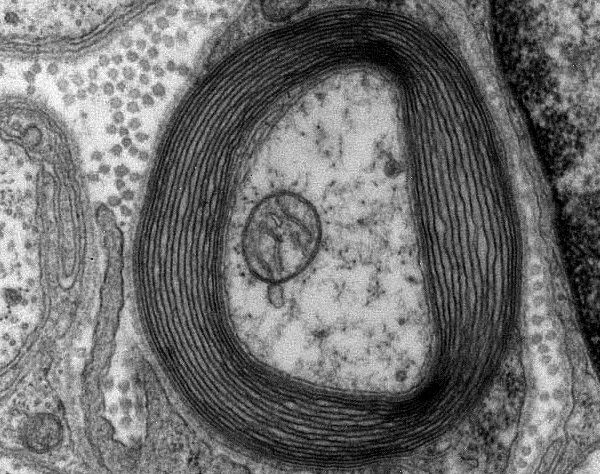Multiple Sclerosis Treatments: How Bone Marrow Transplantation and Tecfidera Prevent Relapses

New research details two cutting-edge multiple sclerosis treatments that may help patients fight off relapses of the debilitating inflammatory disease: bone marrow transplantation, and a drug called Tecfidera that was just approved by the Food and Drug Administration (FDA).
Multiple sclerosis (MS) is a chronic neurological disorder that causes fatigue, sensory and coordination problems, and eventual muscle paralysis. It is one of the most common causes of neurological disorders among young people- a 2007 study from the National Institute of Neurological Disorders and Stroke estimates that at least one in 1,000 people have the disease, and most people develop their first symptoms between the ages of 20 and 40.
It's unclear exactly what causes the disorder, but research indicates that it is an autoimmune disease that makes the body's own immune cells attack myelin, the protective layer that insulates connections between neuron cells in the brain. There is no cure, but effective multiple sclerosis treatments, like the two detailed here, aim to limit relapses and manage symptoms.
Bone Marrow Transplantation: Risky But Effective
Bone marrow transplantation (BMT) has been identified as a risky but potentially beneficial treatment for aggressive multiple sclerosis in recent years. Though it carries severe risks like graft versus host disease, MRI brain scans show that it also stops new brain lesions and symptom relapses. Until now, it has been unclear why this treatment is effective.
A new Canadian multiple sclerosis treatment study, published in the journal Annals of Neurology, helps explain how bone marrow transplantation alters the immune system to reverse symptoms. Its results suggest that specific types of lymphocytes, called Th17 cells, are responsible for much of the inflammation and damage caused by multiple sclerosis.
"We discovered differences between the immune responses of these patients before and after treatment, which point to a particular type of immune response as the potential perpetrator of relapses in MS," said Professor Amit Bar-Or, the principal investigator of the study at The Montreal Neurological Institue and Hospital and McGill University, in a statement.
Bar-Or suggests that Th17 cells might be responsible for breaching the blood-brain barrier, which usually keeps harmful substances in the blood from damaging brain tissue. He believes that once Th17 cells pass through the blood-brain barrier, it becomes easier for other immune cells to enter and attack brain cells.
The results highlight the benefits of BMT treatment for patients with severe MS, and could lead to the development of personalized medicine approaches to multiple sclerosis treatment. Future research might be able to pinpoint specific types ofTh17 cell activity that indicate a patient's likelihood of benefiting from bone marrow transplantation.
Tecfidera: A New FDA-Approved Drug
Another promising new multiple sclerosis treatment is a drug called Tecfidera (dimethyl fumarate), which was just approved by the United States Food and Drug Administration (FDA) today.
According to an FDA news release, two recent clinical trials showed that multiple sclerosis patients taking Tecfidera relapsed less often than people taking a placebo, and also experienced slower progression of multiple sclerosis symptoms.
The statement suggests that Tecfidera reduces the number of lymphocytes, or white blood cells, which could decrease inflammation and protect nerve cells from damage.
Normal lymphocyte activity fights off infections, but Tecfidera did not seem to increase infection rates by reducing lymphocyte counts. Still, the FDA suggests that doctors assess a patient's lymphocyte count before and during Tecfidera treatment.
"No drug provides a cure for multiple sclerosis so it is important to have a variety of treatment options available for patients," said Dr. Russell Katz of the FDA's Center for Drug Evaluation and Research, in the news release.
Reuters reports that the drug, developed by Biogen Idec Inc., is likely to become the top oral multiple sclerosis treatment, with sales of up to $3 billion by 2017.



























